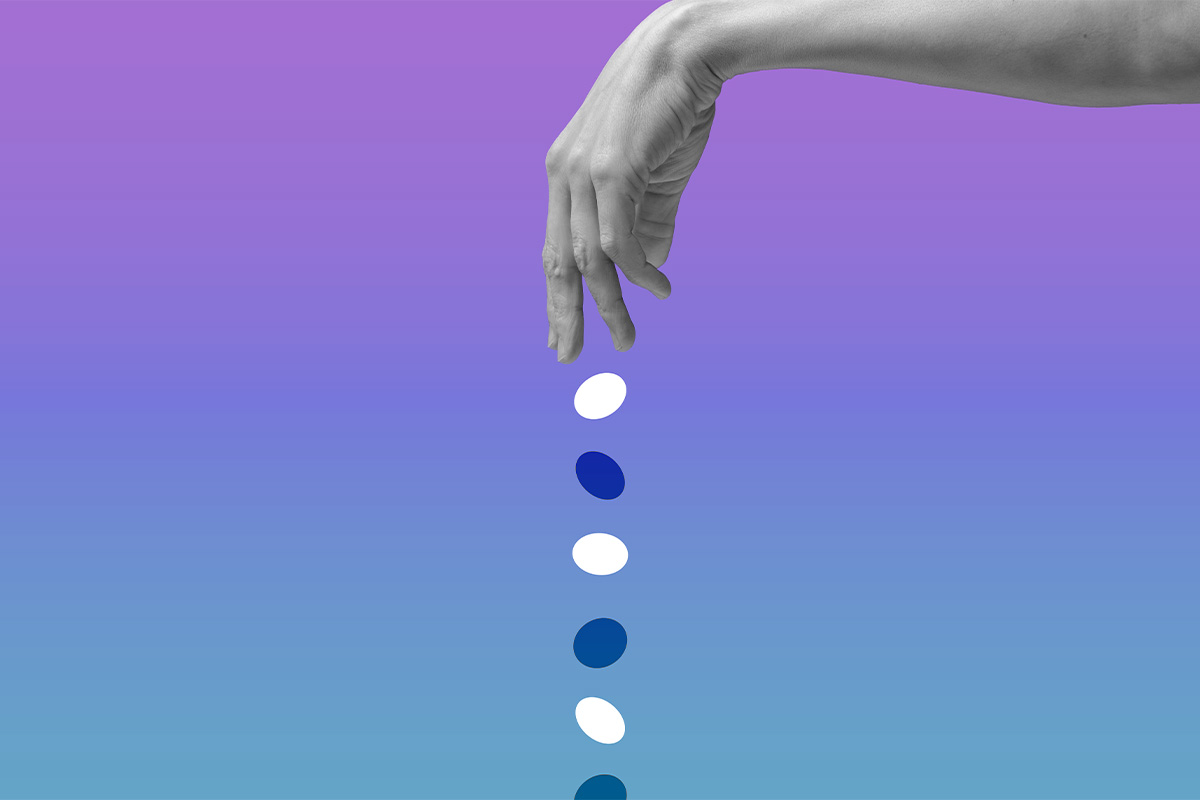We always had a small tzedakah box on the shelf growing up, painted with a technicolor Jerusalem landscape. When I found a quarter on the ground, or my grandparents gave me 20 dollars, I would put some money in the box. When the box was stuffed to capacity, we would take the money to the bank, get it changed into larger denominations, and donate it. We would donate to a synagogue program to provide food for the homeless, perhaps, or to another local charity. When I was about 5 years old and obsessed with tigers, I insisted we donate to the World Wildlife Fund to save endangered wildcats.
As a small child, a few quarters here and there was a substantial portion of my income. More than substantial, since my income was, well, bupkes. But it never felt like a sacrifice to drop coins into the tzedakah box, even though I recall being aware that those coins, used differently, could obtain me new toys. It never felt like a sacrifice, because it felt like an affirmation of my place in the Jewish community.
I had learned in Hebrew school about God’s covenant with the Jewish people, and the mitzvot, or commandments, that were our end of the bargain. “As Jews,” my parents told me, “we give to the needy.” Every time I gave a penny I found on the sidewalk, I derived a corresponding naches, pride, at fulfilling my part of the community’s divine obligation.
I’m no longer a child with a fistful of pennies. I’m a confused young adult in a world on the brink. Even as we struggle to make progress confronting our age-old demons (racism, sexism, war, poverty, disease, exploitation, more), new technologies promise and threaten. We can envision a collective future of unprecedented global happiness, but are haunted by the fear of looming dystopia. Artificial intelligence is on the horizon; so too are new biological threats, climate change, political change, normative change. Amid all these changes, spare change in the tzedakah box no longer seems sufficient. Some argue we are at “the hinge of history,” a unique moment where our present actions may have disproportionate influence on the long-term future.
I wonder: how can I meet the magnified obligations of an outsized moment?
Two years ago, I discovered Giving What We Can, an organization encouraging people to take a pledge to give 10% of their income to the most effective charities they can find. It is not a Jewish organization, but its approach neatly parallels the Jewish practice of tithing, of giving a one-tenth portion of one’s produce or profits to charitable causes or the common good. This feels like a concrete way to translate my Jewish commitment to tzedakah into effective action and turn years of youth group tikkun olam talk into actual, um, tikkun–ing.
Giving What We Can is part of the larger effective altruism movement. Effective altruism is partly a research program, using reason and evidence to figure out the most effective ways to do good. It’s also a community, intent on turning those insights into action. The motivating principle is: If you’re going to try to do some good in the world, why not try to do as much good as you can?
Effective altruists try to understand what things we can do to improve lives as much as possible for as many as possible: for those living now and for those yet to come, for people as well as animals, for the marginalized and overlooked. Should I donate to alleviate global poverty, or to fund research to reduce the risk of global catastrophes? How can we positively influence the very distant future? What issues are most important, most neglected, most tractable? That these conversations echo Talmudic sages arguing around the table is only part of the appeal for me. The main attraction and the main goal is making lives better, and already effective altruists have identified unconventional opportunities to do good that are likely more than hundreds of times as effective as more typical philanthropic ventures.
So I’m pledging to donate at least 10% of my income, in perpetuity, to wherever I think it will do the most good. As I do so, I’ll take pride in joining an intergenerational chain of Jewish giving, extending from biblical tithing to the present.
But tzedakah, derived in Hebrew from a root meaning “justice” or “righteousness,” is about more than simply giving money, and effective altruism is, too. I’ve lately benefited tremendously from the wealth of resources at 80,000 Hours, an effective altruist organization offering free high-quality career advice specifically on how to maximize the good you do with your career. And I’ve benefited even more from the insights and encouragement of the effective altruism community, which reminds me in so many ways of my Jewish one. I see the same cooperative support, the same focus on deliberative inquiry and deliberate moral acts. The same marriage of long-term ethical vision and short-term Getting Shit Done. Effective altruism could hardly seem more Jewish to me if it spent its summers at overnight camp.
I’m not surprised, then, that so many Jews find effective altruism appealing, or that lately there has been a burgeoning interest in exploring the intersection of Judaism and effective altruism. Effective Altruism for Jews — a group I volunteer with — is a new organization aiming to inspire effective altruism in the Jewish community and support Jewish effective altruists.
It feels uncomfortable — sanctimonious, saccharine — to write about my new commitment to maximizing the good I do. I remember learning in Hebrew school about Maimonides’ hierarchy of tzedakah. He says we should give quietly, secretly, anonymously. But I have come to believe that part of the motivation behind Maimonides’ formula is the idea that we should give tzedakah out of a genuine desire to help, not a desire to be praised. I hope that, in talking about the promise of the effective altruist community, I can multiply my impact by sharing some of what I’ve learned.
I’m not some perfect tzadik. I still feel like a small Jewish kid in a world on the brink. But these days, as I fill my little technicolor tzedakah box (and an online donor-advised fund), I have new optimism: that these communities, Judaism and effective altruism, together, can make the world a bit less precarious.



